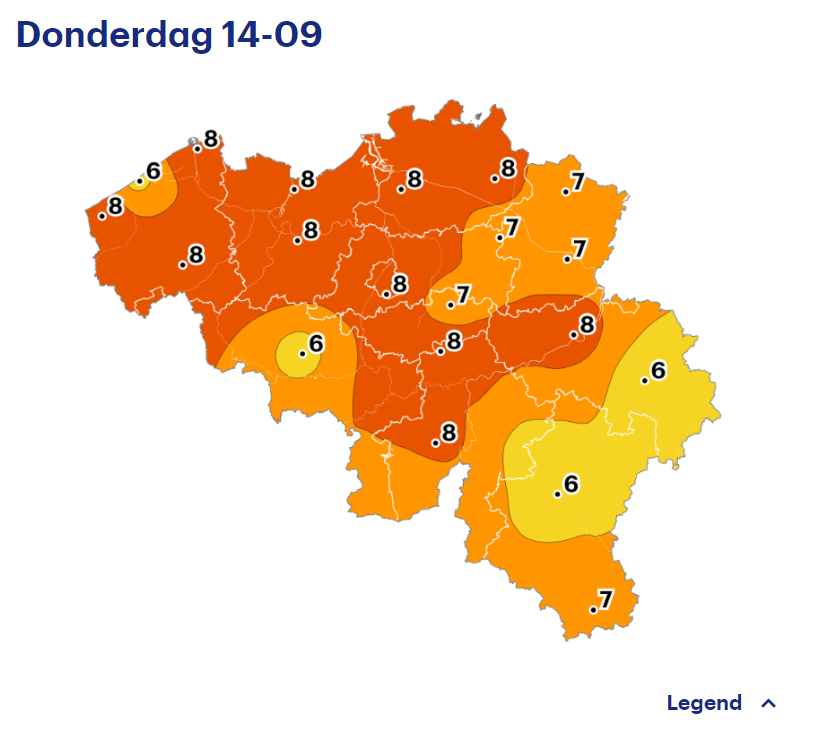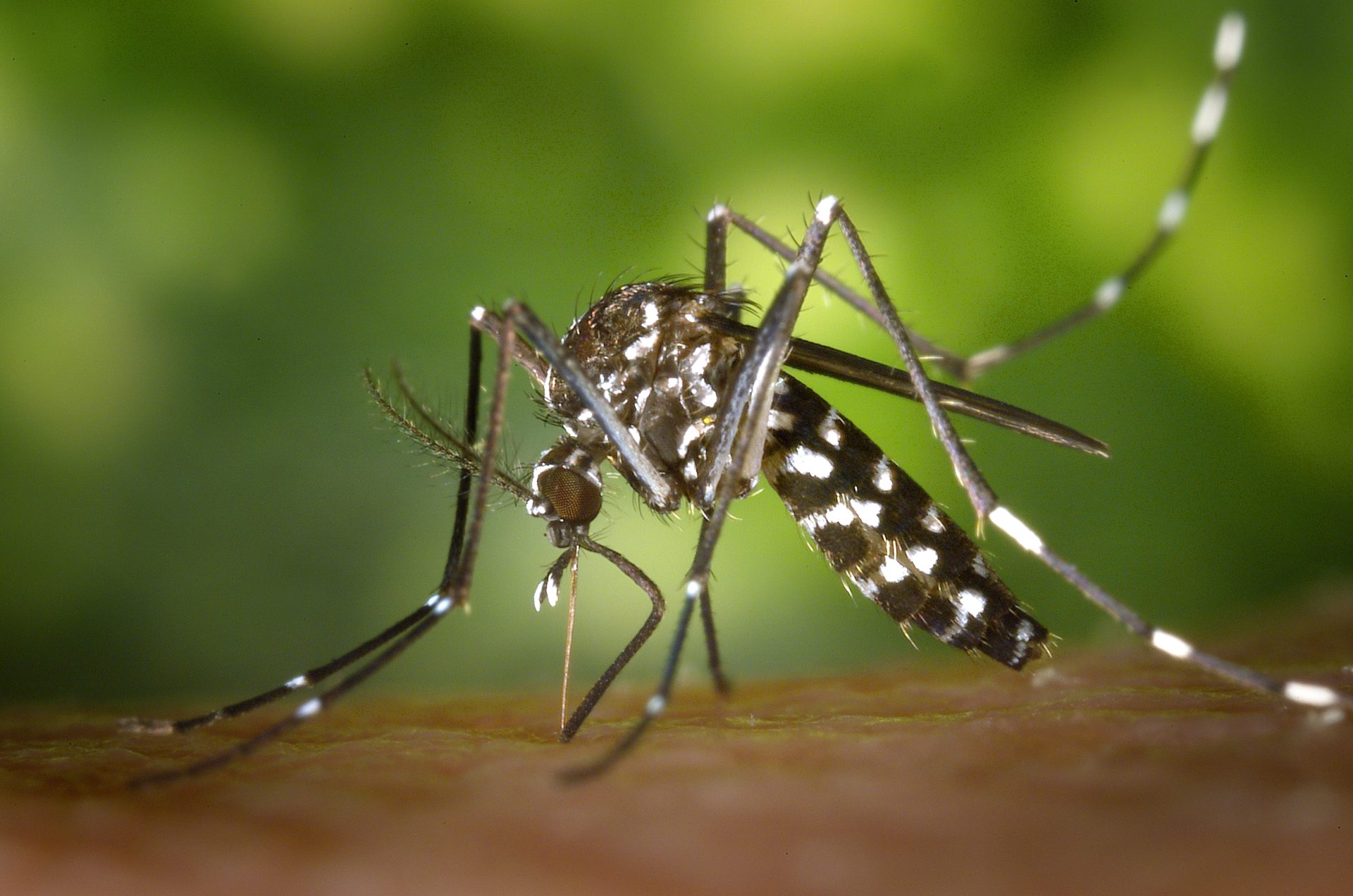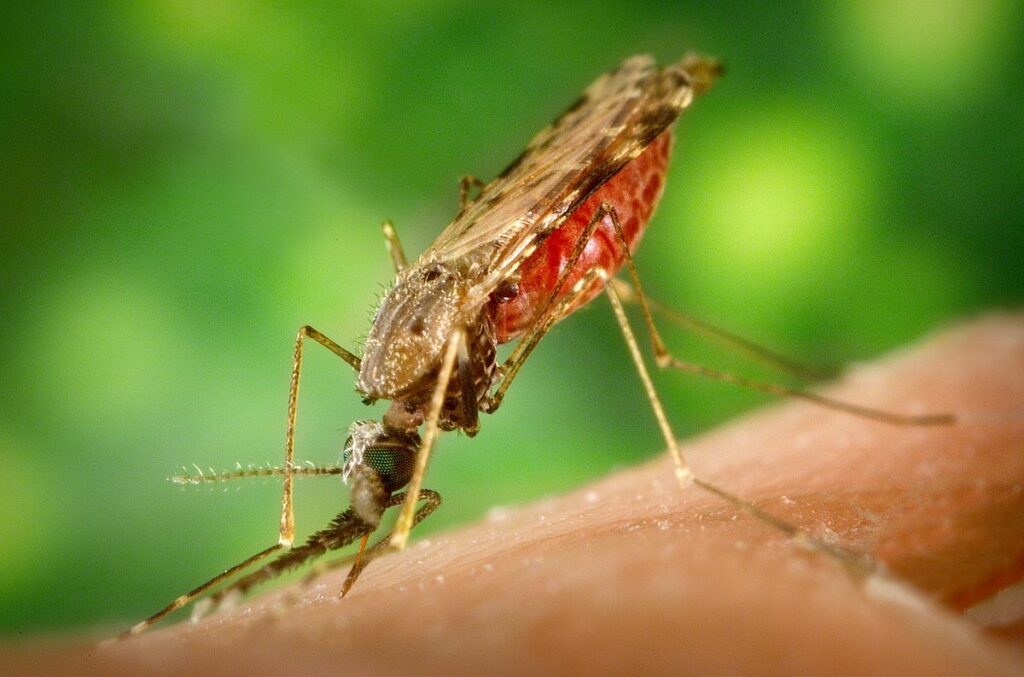A perfect storm: recent weather conditions are helping mosquitos across Belgium to thrive. Chances of being bitten this week are increasing sharply as the biting bugs propagate.
As a result of an extremely dry June and windy June, Belgians have so far been spared from attacks by the blood-sucking insects, but this is now set to change. After a late summer heatwave, humidity is now rising. These are ideal conditions for the reproduction of mosquitoes, Het Laatste Nieuws reports.
Mosquitoes are now flying about looking for a place to lay their eggs. For this, they need blood, drawing them towards our homes. This is nothing exceptional. At this time of year, there is typically an increase in mosquitoes, but in certain areas, there could be more than usual.
Areas located in still or stagnant water will be particularly affected by these insects. Female mosquitoes seek out these bodies of water to lay their larvae. Many different pools of water are well suited for mosquitoes, even in a household context. For example, a flooded cellar, a wheelbarrow full of water, or a blocked gutter.

Credit: Buienradar
Buidenradar’s Muggenradar (Mosquito radar) shows that most of Flanders, as Brussels and some parts of Wallonia, will be especially affected by mosquitoes on Thursday, showing red on the map. With colder temperatures forecast, this explosion should thankfully not last long.
Health concerns
In Paris, authorities have begun spraying the streets with insecticides for the first time to target the tiger mosquito, which is known to carry dengue fever, a potentially deadly disease that can cause fever and rashes. Several cases have been detected across France and the insect is now present in the majority of French provinces, including those along the border with Belgium.

The tiger mosquito originally comes from Southeast Asia. Credit: Wikimedia Commons.
The current climate is perfectly suited for the invasive tropical mosquito. The presence of these particularly aggressive and dirty mosquitos is intensively monitored by health authorities in Belgium. Last year, there were over 300 reports of the mosquito in our country. Unlike ordinary mosquitoes which bite at night, the tiger mosquito preys during the day.
Bites from these insects are slightly more painful than for ordinary mosquitoes, but importantly can risk transmitting a variety of tropical diseases such as dengue, zika, chikungunya, and others. Fortunately, this is not particularly common in Europe.
To stop mosquitoes from biting during the night, Belgians can apply mosquito repellant, wear long-sleeved pyjamas, use mosquito nets, or use diffusers with oils that the insects are known to hate (citronella, lemon, cinnamon, eucalyptus).

